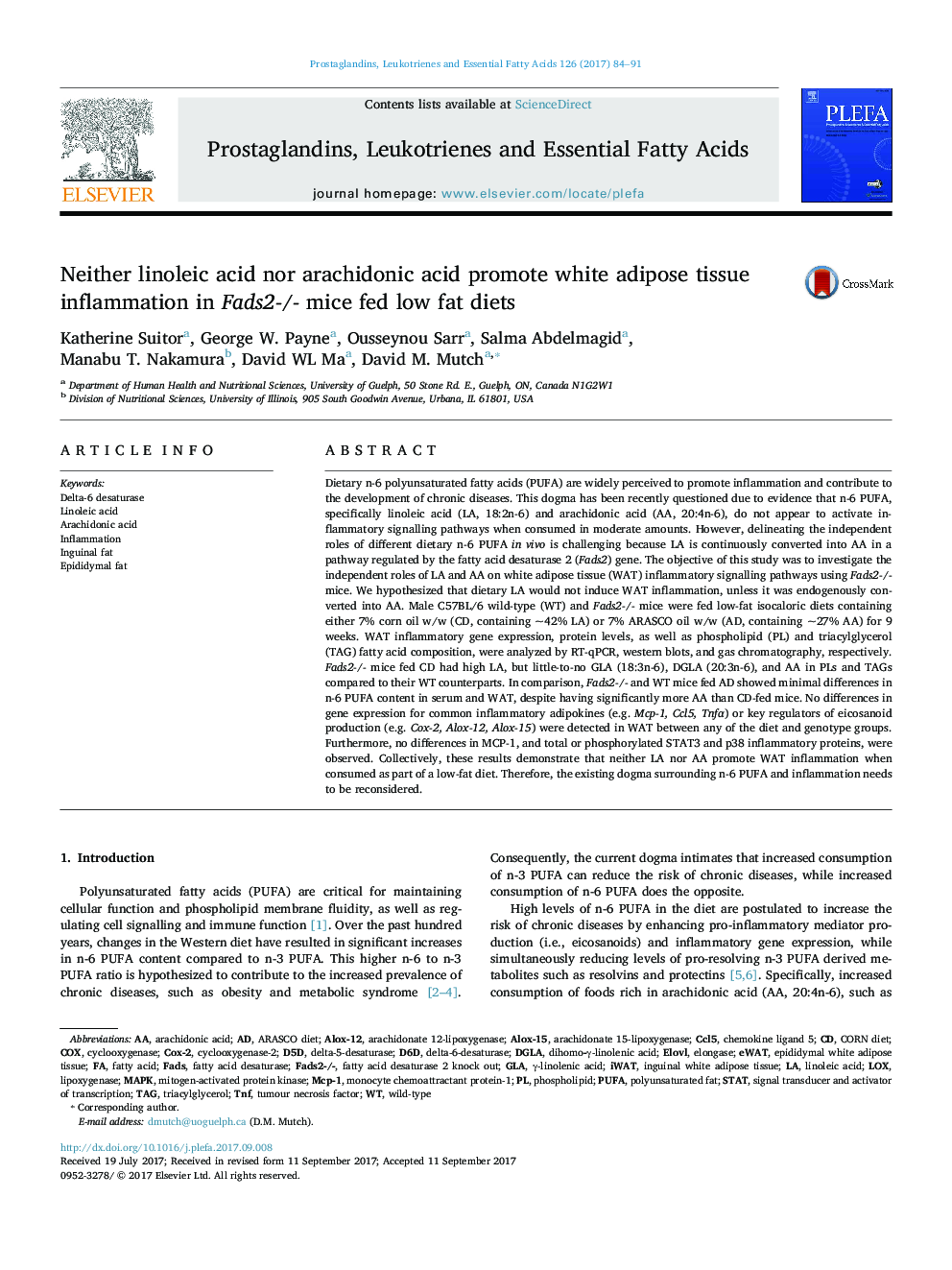| Article ID | Journal | Published Year | Pages | File Type |
|---|---|---|---|---|
| 5584869 | Prostaglandins, Leukotrienes and Essential Fatty Acids (PLEFA) | 2017 | 8 Pages |
Abstract
Dietary n-6 polyunsaturated fatty acids (PUFA) are widely perceived to promote inflammation and contribute to the development of chronic diseases. This dogma has been recently questioned due to evidence that n-6 PUFA, specifically linoleic acid (LA, 18:2n-6) and arachidonic acid (AA, 20:4n-6), do not appear to activate inflammatory signalling pathways when consumed in moderate amounts. However, delineating the independent roles of different dietary n-6 PUFA in vivo is challenging because LA is continuously converted into AA in a pathway regulated by the fatty acid desaturase 2 (Fads2) gene. The objective of this study was to investigate the independent roles of LA and AA on white adipose tissue (WAT) inflammatory signalling pathways using Fads2-/- mice. We hypothesized that dietary LA would not induce WAT inflammation, unless it was endogenously converted into AA. Male C57BL/6 wild-type (WT) and Fads2-/- mice were fed low-fat isocaloric diets containing either 7% corn oil w/w (CD, containing ~42% LA) or 7% ARASCO oil w/w (AD, containing ~27% AA) for 9 weeks. WAT inflammatory gene expression, protein levels, as well as phospholipid (PL) and triacylglycerol (TAG) fatty acid composition, were analyzed by RT-qPCR, western blots, and gas chromatography, respectively. Fads2-/- mice fed CD had high LA, but little-to-no GLA (18:3n-6), DGLA (20:3n-6), and AA in PLs and TAGs compared to their WT counterparts. In comparison, Fads2-/- and WT mice fed AD showed minimal differences in n-6 PUFA content in serum and WAT, despite having significantly more AA than CD-fed mice. No differences in gene expression for common inflammatory adipokines (e.g. Mcp-1, Ccl5, Tnfα) or key regulators of eicosanoid production (e.g. Cox-2, Alox-12, Alox-15) were detected in WAT between any of the diet and genotype groups. Furthermore, no differences in MCP-1, and total or phosphorylated STAT3 and p38 inflammatory proteins, were observed. Collectively, these results demonstrate that neither LA nor AA promote WAT inflammation when consumed as part of a low-fat diet. Therefore, the existing dogma surrounding n-6 PUFA and inflammation needs to be reconsidered.
Keywords
Related Topics
Life Sciences
Biochemistry, Genetics and Molecular Biology
Clinical Biochemistry
Authors
Katherine Suitor, George W. Payne, Ousseynou Sarr, Salma Abdelmagid, Manabu T. Nakamura, David WL Ma, David M. Mutch,
